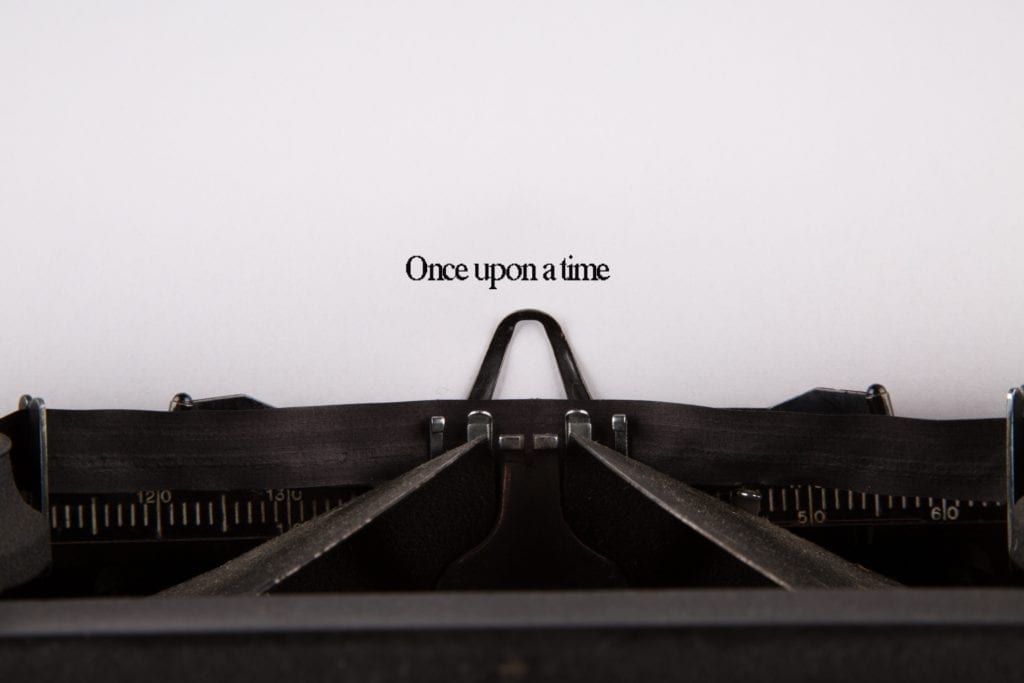Ahmad Shakeri
Howsikan Kugathasan
Toronto, Ontario, Canada
 |
| Storytelling helps healthcare workers learn about the person, not just the patient. Once Upon a Time, by George Hodan. Source |
Working at a Toronto harm reduction clinic helped reconcile my different points of view on drug addiction. In the classroom, I was a progressive-minded graduate student willing to apply research to improve health outcomes for people who use drugs. But on the street and the subway, my personal policy was different: do not make eye contact, change seats when they are near you, and avoid them at all costs.
This discord between my thoughts and actions came from a view of medicine that I had cultivated throughout my life and education: a science of applied biology, chemistry, and physics. Diseases could be neatly summed as flaws in biochemical pathways and objective answers could be found under the microscope. To bolster this view, in graduate school I worked with statistical models, further pushing people and their ailments into the realm of data points and decimals.
At the clinic, I was often responsible for handing out clean needles and interviewing drug users about their experiences. It was from these interviews that I learned to appreciate the role of stories in my understanding of science. I had learned from journal articles and textbooks that Canada is the world’s second highest per-capita consumer of opioids (after the United States), but I never knew what that statistic meant.1 It was only from speaking to clinic patrons that I found out that most ended up where they were not from a lack of innate self-control, but because they had first been prescribed opioids for an injury. Mark, a patron, told me about the difficulties of finding food to eat. Mark appeared disheveled and looked exactly like the type of person that I would avoid in public. But as I heard him recount his struggles, I saw how the opioid crisis was wider than the drugs alone.
One cold Toronto day, I was working outdoors handing out clean needles to the homeless who needed them. Out of the corner of my eye, I noticed a man lying on a park bench. His face glistened in the light, which seemed unusual to me, and I realized that I was witnessing an overdose. I ran over to the man and gave him a shot of naloxone. I realized that he had been sweating, discordant with the cold weather, which had tipped me off intuitively.
Medicine is a science. That remains true. But medicine, unlike physics, is not just a science of laws. It is a science of rules that come with exceptions, reversals, and surprises. For physicians and everyone working in the healthcare system, working in a science of rules means widening what we would count as evidence. Working with patients in a harm reduction clinic has taught me to appreciate the wideness of context that bring patients to where they are. Hearing the stories of patrons has helped me appreciate the impact that situations can have on a person and taught me to look beyond disposition when assessing them. These stories helped me reconcile what I learned in class with what I saw in the clinic. And my exposure to the uncertain and the intuitive that day I was outside showed me that not all information will be clear-cut and neatly laid out.
Many would argue that medicine is an art and a science, but I would differ slightly in that definition. Art’s role is to produce creative work, while the role of science is to understand the world objectively. In medicine, objective understanding is applied to treat others, but it can come from many sources of evidence, including stories and intuition. This does not make medicine less scientific, but rather a wider and more inclusive science.
Reference
- Belzak L, Halverson J. The opioid crisis in Canada: A national perspective. Heal Promot Chronic Dis Prev Canada. 2018;38(6):224-233. doi:10.24095/hpcdp.38.6.02
AHMAD SHAKERI is a student at the Leslie Dan Faculty of Pharmacy, University of Toronto, specializing in the field of pharmacoepidemiology and health services research. His interests are bioethics, pharmacology and toxicology, and epidemiology.
HOWSIKAN KUGATHASAN is a student at the Department of Mathematics and Statistics, York University. He has a strong interest in bioethics, economics, and law.
Spring 2020 | Sections | Doctors, Patients, & Diseases

Leave a Reply